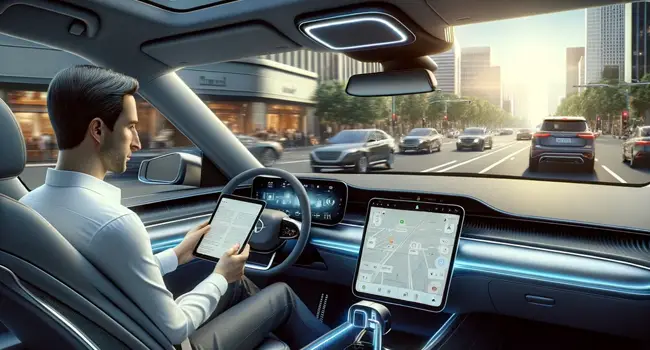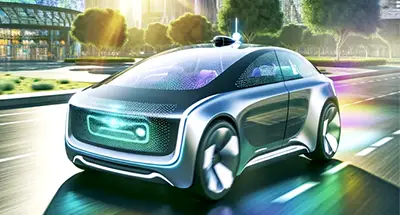Future Transportation

Transportation has come a long way since the invention of the wheel, and we are now on the cusp of a new era of transportation. The future of transportation will see unprecedented advances in technology, sustainability, and accessibility.
One of the biggest trends in transportation is the shift towards electric vehicles. As electric cars become more affordable and more efficient, we can expect to see more and more people choosing to drive electric vehicles. In addition, the development of new battery technologies will allow for longer ranges and faster charging times, making electric cars even more practical for daily use.
Another major trend in transportation is the development of autonomous vehicles. Self-driving cars have the potential to revolutionize the way we travel, making roads safer and more efficient while also reducing traffic congestion. With the help of sensors, cameras, and advanced algorithms, autonomous vehicles will be able to navigate roads and make decisions without human input.
However, the future of transportation isn't just limited to cars. Alternative modes of transportation are also on the rise. Electric bikes and scooters are becoming increasingly popular in cities, offering a convenient and environmentally friendly way to get around. In addition, public transportation systems are being upgraded with new technologies and features, such as real-time tracking and mobile payments.
One of the most exciting possibilities for the future of transportation is the development of new modes of travel, such as hyperloops and flying cars. Hyperloops are high-speed transportation systems that use magnetic levitation to propel pods through vacuum-sealed tubes at high speeds. Meanwhile, flying cars and eVTOLs are being developed that will allow people to travel through the air, avoiding traffic congestion on the ground.
In addition to these technological advancements, there is also a growing emphasis on sustainability in transportation. As concerns about climate change continue to mount, people are looking for ways to reduce their carbon footprint. This has led to the development of new forms of transportation, such as electric planes and ships powered by renewable energy sources like wind and solar.
The future of transportation will also see improvements in accessibility. With the development of new technologies and features, transportation will become more accessible to people with disabilities, the elderly, and other underserved communities. This includes everything from wheelchair-accessible vehicles to ride-sharing services specifically designed for people with mobility challenges.
The future of transportation is bright, with a wide range of exciting developments on the horizon. From electric vehicles to autonomous cars to hyperloops and flying cars, there are many exciting possibilities for how we will get around in the years to come. As technology continues to evolve and the world becomes more conscious of sustainability and accessibility, we can expect to see transportation become faster, safer, and more convenient than ever before.
Future Cars

Cars of the future will be radically different than the automobiles of today, and so will the driving experience.
Autonomous Vehicles

Autonomous vehicles, also known as self-driving cars, are no longer a futuristic concept but rather a reality that is rapidly transforming the world of transportation. These vehicles use a combination of sensors, cameras, GPS, and advanced artificial intelligence to navigate roads and highways without human intervention.
Future Transportation Vehicle Articles and Web Sites
-
I search the internet daily for new articles from around the world that interest me or I think will interest you. My hope is that it saves you time or helps students with their assignments. Listed by most recent first, dating back to 2005. Hit NEXT button for more articles
-
Novel technology reaches 100-kW wireless power transfer for passenger vehicle from ORNL
-
Megawatt-scale liquid H2 airliner powertrain comes to life from New Atlas
-
Understanding The Gas Station Business Helps Us Understand The Future of EV Charging from Clean Technica
-
Future mobility flying car Xpeng video
-
Hyundai Supernal S-A2 Electric Air Taxi Preps for Launch video
-
This Game-Changing Jet Fuel Could Change Aviation and Climate Change Forever video
-
All the future of transportation tech that stood out at CES 2024 from TechCrunch
-
4 Upcoming EV Technologies That Could Change the Game from How-to Geek
-
Reliable Robotics remotely operates a large cargo aircraft with no one on board video
-
Solar-powered airship will circle the world non-stop without fuel from New Atlas
-
This Bonkers Zero-Emissions Airship Was Designed to Fly ‘Forever’ from Robb Report
-
Flying Car Ecosystem Shapes Up from IoT World Today
-
The Beginning of Future Mobility Innovation - Wheelbot Hankook Tire video
-
Can this battery-swapping electric scooter help clean up cities? We take a ride from BBC News
-
A flying car prototype just got an airworthiness certificate from the FAA from ABC7
-
Delivery robot video
-
Electric vehicles alone can’t solve transportation’s climate problems from Yale Climate Connections
-
Pioneering wind-powered cargo ship charts course for greener shipping video
-
JetZero’s Next-Gen Aircraft Could Change How We Fly for the First Time in Decades from Singularity Hub
-
Flying Ship video
-
This is what a cruise ship could look like in the year 2100 from Cruise
-
How Patents Are Helping Us To Visualize The Future Of Flying from Simple Flying
-
This Box Wing eVTOL Will Run on Hydrogen and Have a Range of 620 Miles from Singularity Hub
-
93-kilometre cycling highway to make Dubai the most connected city on earth video
-
Future Highways Must Look Like This from archdigest.com
-
The future of flight in a net-zero-carbon world: 9 scenarios, lots of sustainable biofuel from The Conversation
-
The EV transition isn’t just about cars – the broader goal should be access to clean mobility for everyone from The Conversation
-
Autonomous driving’s future: Convenient and connected from McKinsey & Company
-
A New Player, HOLON, Enters The Emerging Autonomous People Mover Industry from CleanTechnica
-
Aska A5 is a flying electric car that can take off vertically from Venture Beat
-
The World’s First Flying Motorcycle Could Hit the Skies Soon from The Robb Report
-
The Tech Is Finally Good Enough for an Airship Revival from IEEE Spectrum
-
Airplane Mode to Become Obsolete in the EU from Gizmodo
-
Passenger drone tours ready for takeoff in Tulum, if permission is granted from Yucatan Magazine
-
What It's Like to Fly in Xwing's Self-Flying Plane from CNET
-
5 Ways Technology Is Revolutionizing Transportation from FilmInk
-
Can this invention fix dirty transportation? from Freethink
-
You can now buy a flying car for $92,000 from Big Think
-
Autonomus marine systems video
-
The world's first remote truck driver Einride video
-
If all the vehicles in the world were to convert to electric, would it be quieter? from The Conversation
-
Boomerang-shaped urban mobility vehicle from Yanko Design
-
How should electric vehicles sound? BBC Click video
-
Electrifying transportation reduces emissions AND saves massive amounts of energy from Yale Climate Connections
-
Vertical Urban Mobility: Why the future of urban development lies far above the ground from World Economic Forum
-
Self-driving electric container ship sets sail in Norway BBC News video
-
A Design Concept for a Nuclear Fusion Powered Luxury Hotel Plane That Can Stay Airborne for Years from Laughing Squid
-
Electric Seagliders Could Enable Short-Haul Emissions-Free Air Travel This Decade from Singularity Hub
-
Driving with electricity is much cheaper than with gasoline from Yale Climate Connections
-
Stratolaunch Shows Off Prototype of Its Hypersonic Aircraft from Gizmodo
-
This Road Wirelessly Charges Electric Cars as They Drive from Gizmodo
-
An Autonomous Ship Used AI to Cross the Atlantic Without a Human Crew from Singularity Hub

